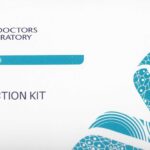Introduction
Polycystic Ovary Syndrome (PCOS) is a common hormonal and metabolic condition affecting around 1 in 10 women in the UK. At Holistic Gynaecology Clinic London, we believe in combining evidence-based medical guidance from NHS and RCOG with integrative, supportive, whole-person approaches. Our South London–based care focuses on both your physical well-being and emotional resilience.
Understanding PCOS Through a Holistic Lens
PCOS often presents with irregular periods, excess hair growth, acne, weight gain, and fertility challenges. It also increases long-term risks, including type 2 diabetes, cardiovascular disease, endometrial cancer, and mental health challenges such as low self-esteem and depression. A key driver is insulin resistance—frequently elevated even when body mass index (BMI) is normal.
Key Holistic Strategies Backed by UK Health Guidance
1. Lifestyle Change: Diet, Weight & Activity
– Healthy weight management is foundational. Losing even 5% of body weight if BMI is above normal can improve insulin sensitivity, menstrual regularity, and fertility.
– Dietary guidance from NHS and local Trusts recommends low-glycaemic, high-fibre carbs (like wholegrain bread, oats, legumes), plenty of fruit and vegetables, lean proteins, and healthy fats (e.g. oily fish, nuts, avocado)—aligned with Mediterranean-style principles.
– Exercise recommendations: At least 150 minutes per week of moderate activity—or 75 minutes vigorous—plus two strength sessions. Yoga can also support menstrual hormone balance.
2. Regular Health Monitoring & Medical Support
– Ongoing screening for diabetes (HbA1c or glucose tests), blood pressure, cardiovascular risks, and endometrial thickness is guided by NHS and RCOG pathways.
– Hormonal regulation (e.g., withdrawal bleeds with progestogens, combined contraceptives) may be advised if periods are infrequent (<3–4 per year) to reduce risk of endometrial issues.
– Local NHS patient information stresses that lifestyle changes can be as effective as medicines, and should be the first approach—or combined with medication where needed.
3. Mind-Body Practices & Emotional Wellbeing
– Chronic stress and mood concerns—common in PCOS—can exacerbate symptoms. UK guidance highlights the importance of mental health support, including referrals for therapy when needed.
– Incorporating mind-body practices such as yoga, mindful movement (e.g., walking, Pilates, Tai Chi), and stress-relief techniques supports hormonal balance and emotional resilience.
4. Supplements & Complementary Therapies — Right Approach, Cautiously Applied
– UK-based and international evidence suggests myo-inositol may improve menstrual function and insulin resistance—but with limited support for pregnancy outcomes.
– Evidence for acupuncture remains inconclusive at this time; more high-quality trials are needed.
– As a recent Guardian feature points out, misinformation around unverified supplements is rampant, increasing the need for medically informed guidance.
Why Choose Holistic Gynaecology Clinic London?
Located right here in South London, we integrate NHS-aligned medical oversight with personalised functional and lifestyle strategies. From weight and nutrition support to mind–body care and emotional well-being, we guide you on a realistic, sustainable journey toward hormonal health—anchored in both rigorous UK healthcare standards and compassionate, whole-person care.
Bibliography
1.- NHS. Polycystic ovary syndrome – NHS overview and treatment advice nhs.uk.
2.- RCOG. Long-term health implications and lifestyle guidance for PCOS RCOG.
3.- Royal Berkshire NHS Trust. PCOS dietary advice leaflet (Nov 2022) Royal Berkshire NHS Foundation Trust.
4.- NHS East London Foundation Trust. PCOS lifestyle management and exercise recommendations East London NHS Foundation Trust.
5.- British Dietetic Association. PCOS diet and movement guidance British Dietetic Association.
6.- RCGP / Scottish NHS. Lifestyle changes and referral guidance for PCOS Right Decisions.
7.- Manchester University NHS Foundation Trust. PCOS patient information leaflet (Dec 2023) MFT.
8.- Wikipedia overview (UK-relevant content). Lifestyle and mental health aspects of PCOS Wikipedia.
9.-The Guardian (June 2025). Misinformation and need for evidence-based PCOS care in UK context The Guardian.





